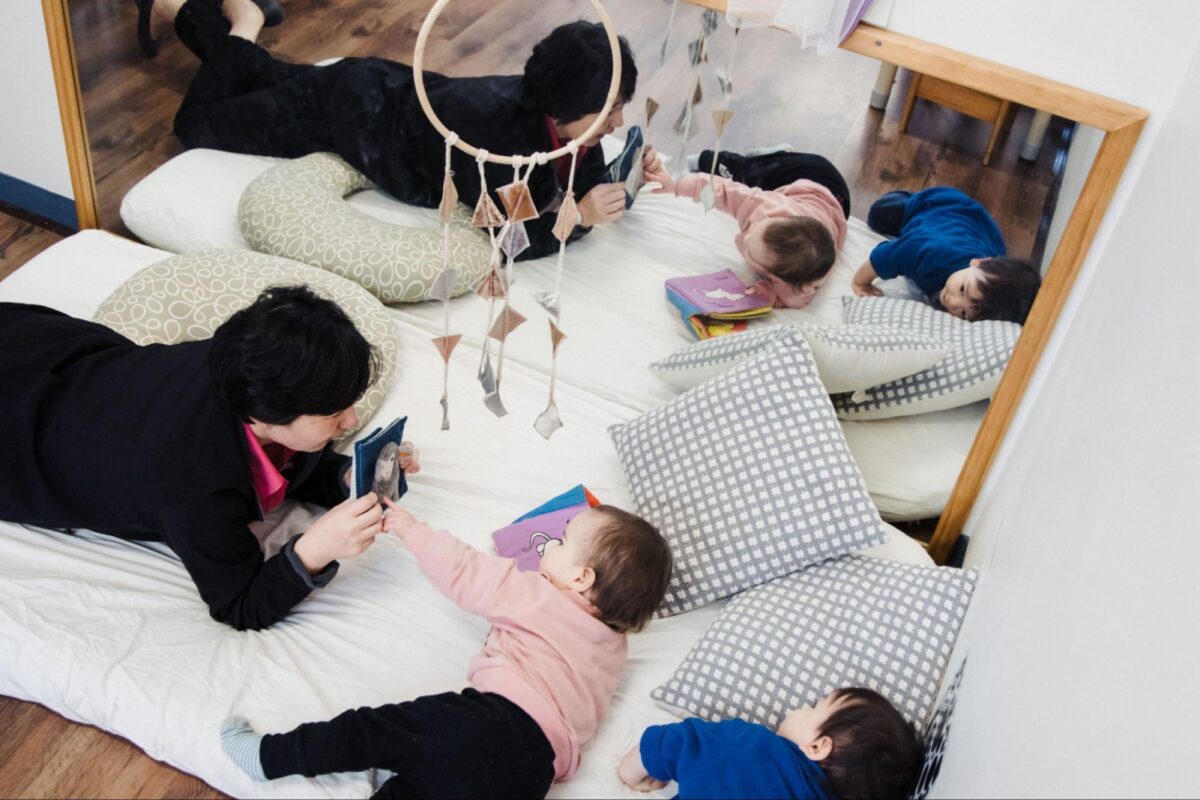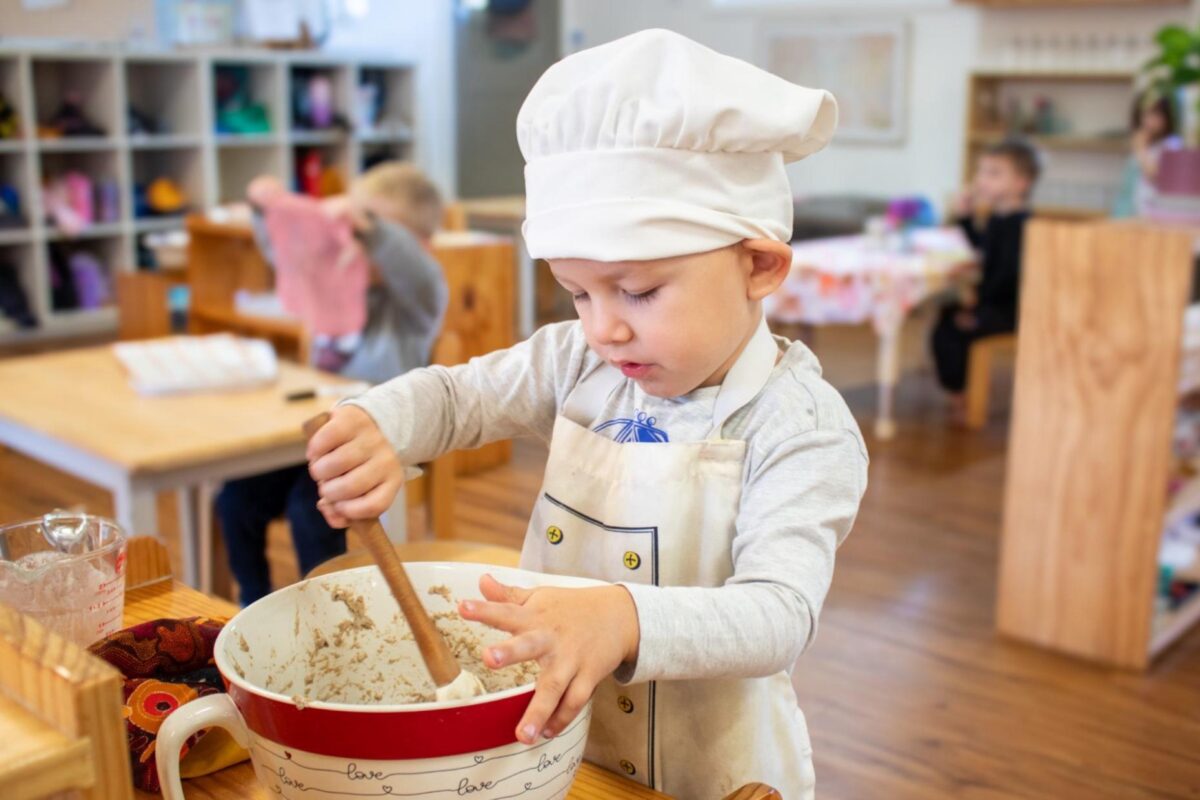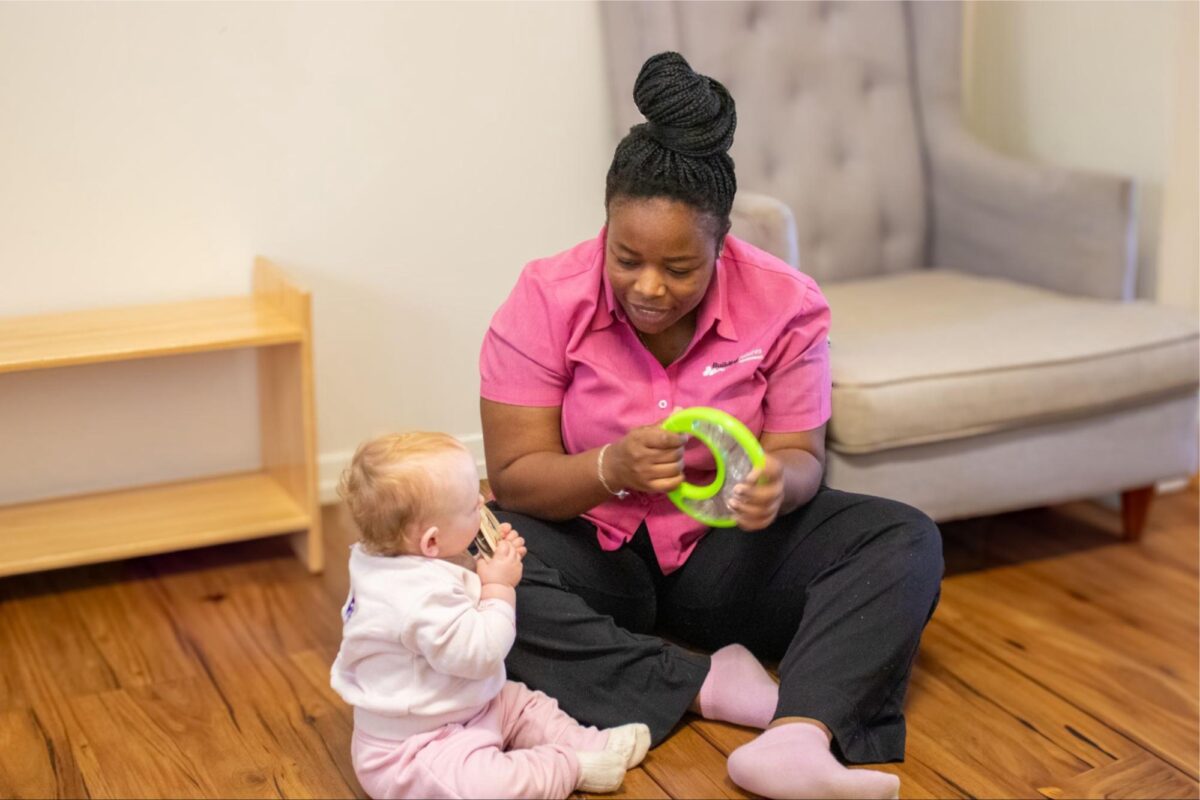Why is learning through the senses important?

Young children are naturally curious and eager to explore the world around them. This desire to learn and discover is part of their natural development, guided by what Montessori calls the Human Tendencies and Sensitive Periods. Between the ages of 3 and 6, children are especially focused on refining their senses and improving their ability to move with control and purpose. During this time, children absorb knowledge through active engagement with their environment.
But how do they gather this information?
The answer lies in their senses.
Everything a child learns about the world comes through sight, hearing, touch, taste, and smell. Without these senses, the brain would have no way to receive or process information.
This is why the development and refinement of a child’s senses are so important. When their senses are sharpened, the information they take in becomes clearer and more accurate, helping their brains make sense of the world. Montessori activities are carefully designed to support this process.
These activities often include a built-in feature called the control of error. This means that children can identify and correct their own mistakes as they work, without needing constant guidance from an adult. This approach ensures that children experience success and grow in confidence as they complete tasks on their own.
Sensorial education develops the child’s ability to be able to classify, order and discriminate and therefore better understand and appreciate these natural impressions. It helps the child to begin to develop a conscious knowledge of the environment, as opposed to the unconscious knowledge he has acquired since birth. The exercises assist the child in developing an ordered mind.
An ordered mind and the ability to think logically will benefit him throughout life. Training and refining the child’s senses in this manner, greatly enlarges his field of perception and provides a solid foundation for further intellectual growth.
It is the development of our senses which leads us to abstraction. The child has a natural desire to touch and explore everything around him. This curiosity drives his experience and the child begins to explore concepts such as size, form, weight, texture etc in a very concrete manner. He will need many repeated concrete experiences before he is able to retain an idea/concept in the abstract form.
Sensorial education plays a vital role in helping young children make sense of the world. By engaging in activities that sharpen their ability to classify, order, and compare, children learn to better understand and appreciate the impressions they gather from their environment. This process moves them from the unconscious knowledge they’ve absorbed since birth to a more conscious awareness of the world around them.
Through Montessori exercises, children begin to develop an ordered mind. This means they learn to organise their thoughts and approach challenges in a logical way. These skills—order and logical thinking—are foundational and will benefit them throughout their lives, enabling them to navigate complex ideas and situations with confidence.
Refining a child’s senses through sensorial activities also broadens their perception, laying a strong foundation for intellectual growth. For example, when a child explores activities that focus on concepts like size, shape, weight, and texture, they begin to understand these ideas in a very tangible, hands-on way.
Children naturally learn through curiosity, driven by their desire to touch, see, and explore the world. Montessori sensorial materials take advantage of this natural curiosity, offering opportunities for children to experience concepts concretely. Over time, as they repeat these activities, they internalise the ideas and begin to understand them in an abstract way.
In this way, sensorial education not only helps children make sense of their immediate surroundings but also prepares them for more advanced learning. By starting with hands-on experiences and progressing to abstract thinking, children build a strong intellectual foundation that will support their growth for years to come.



